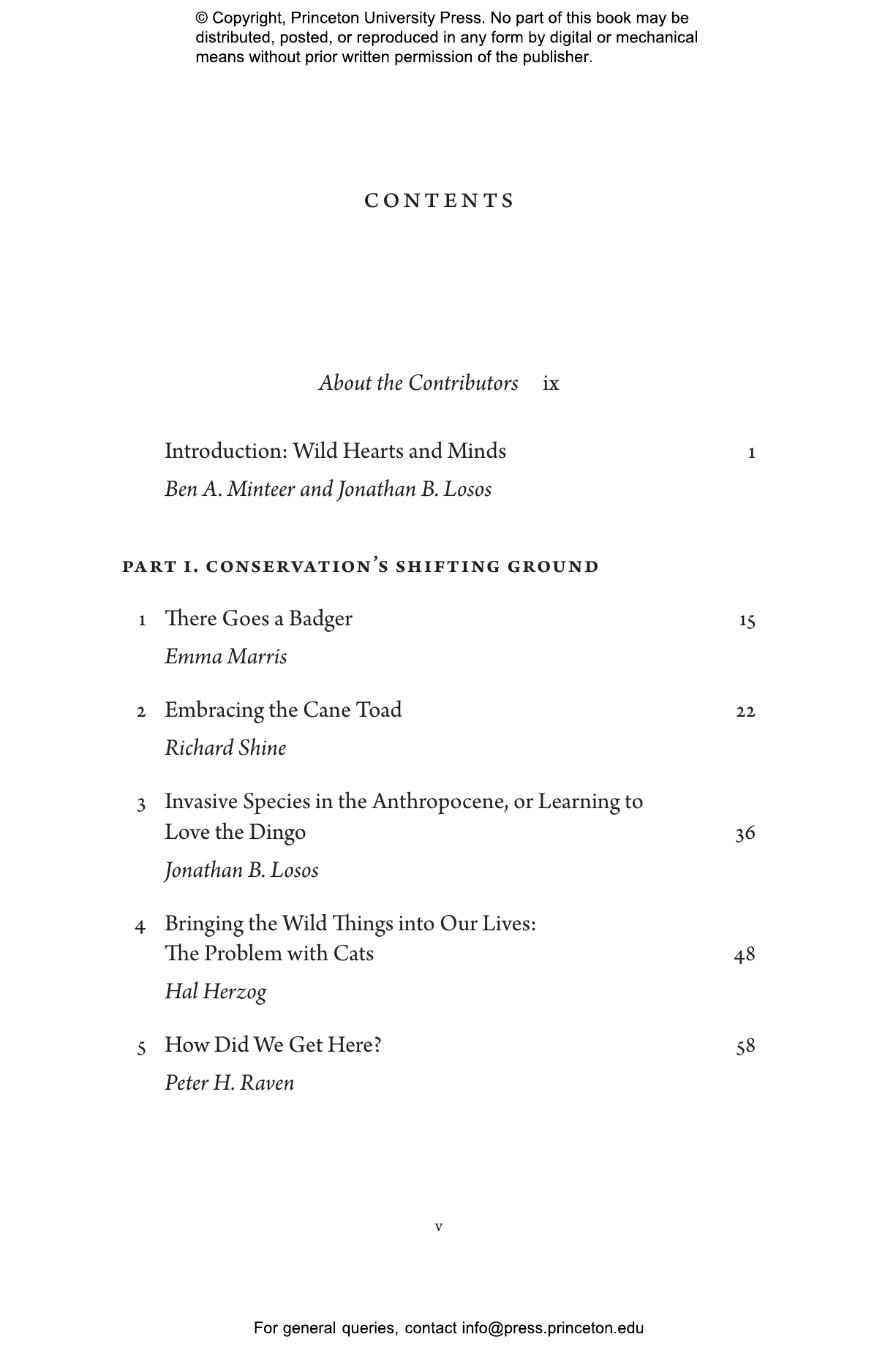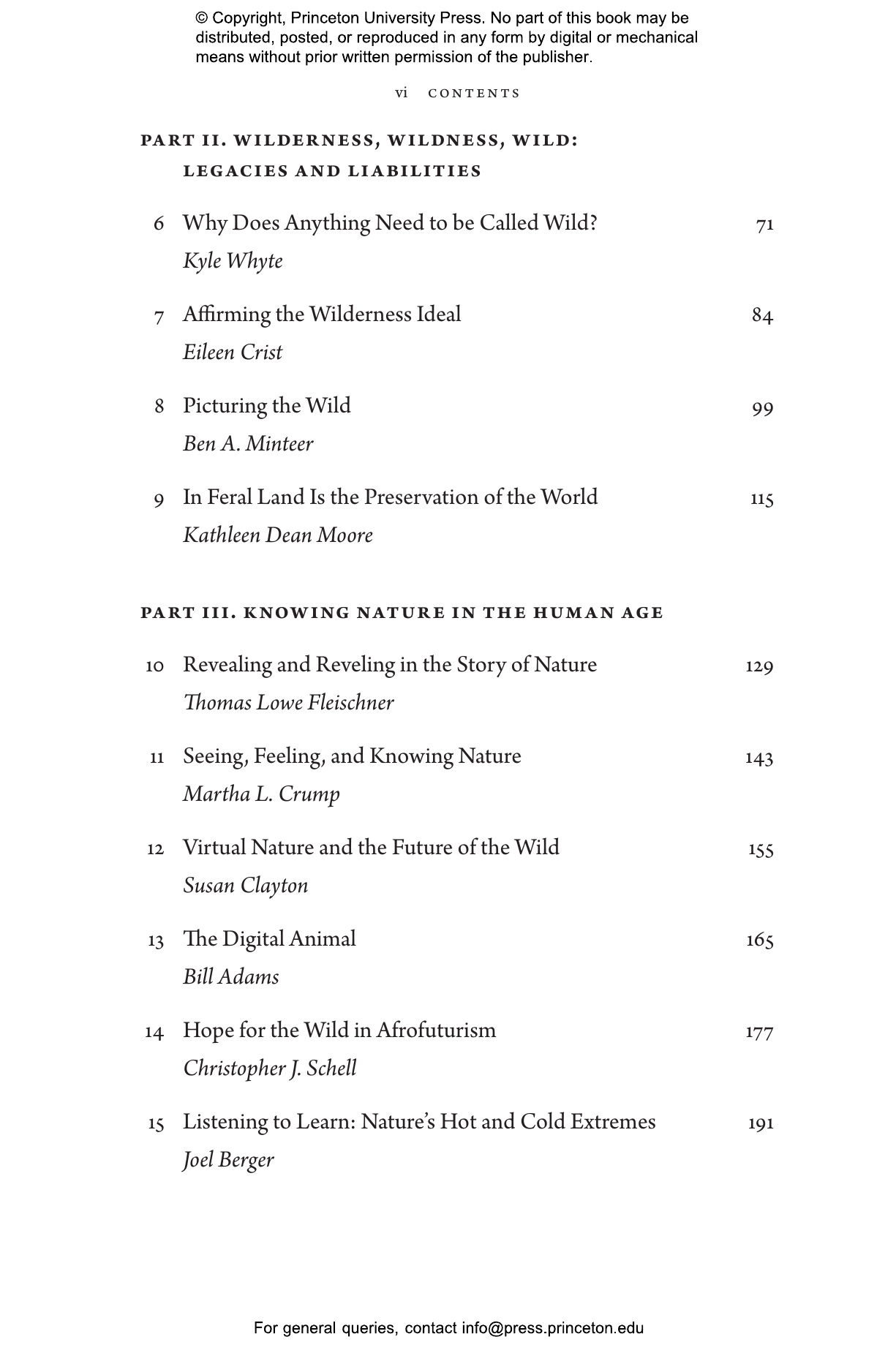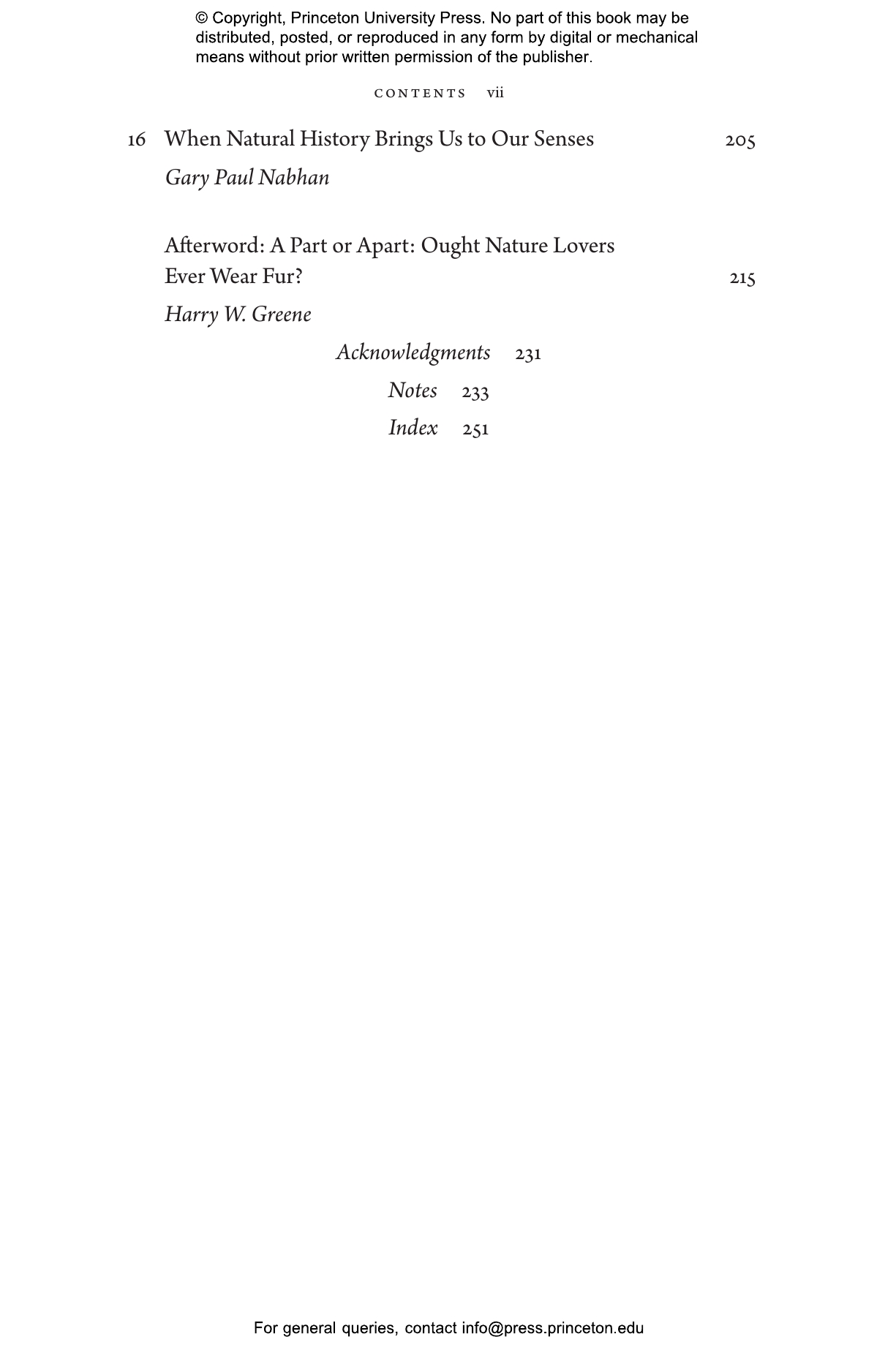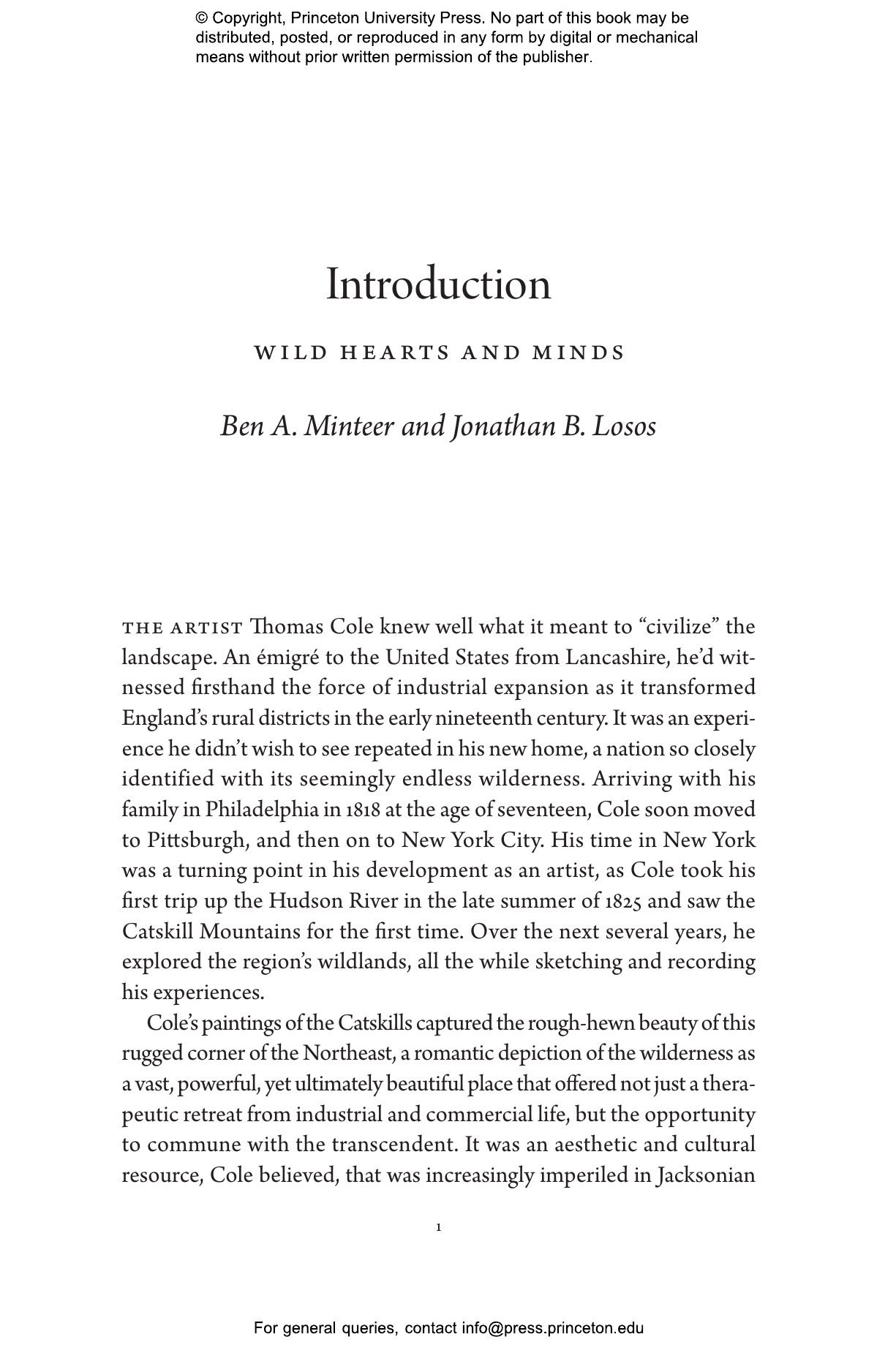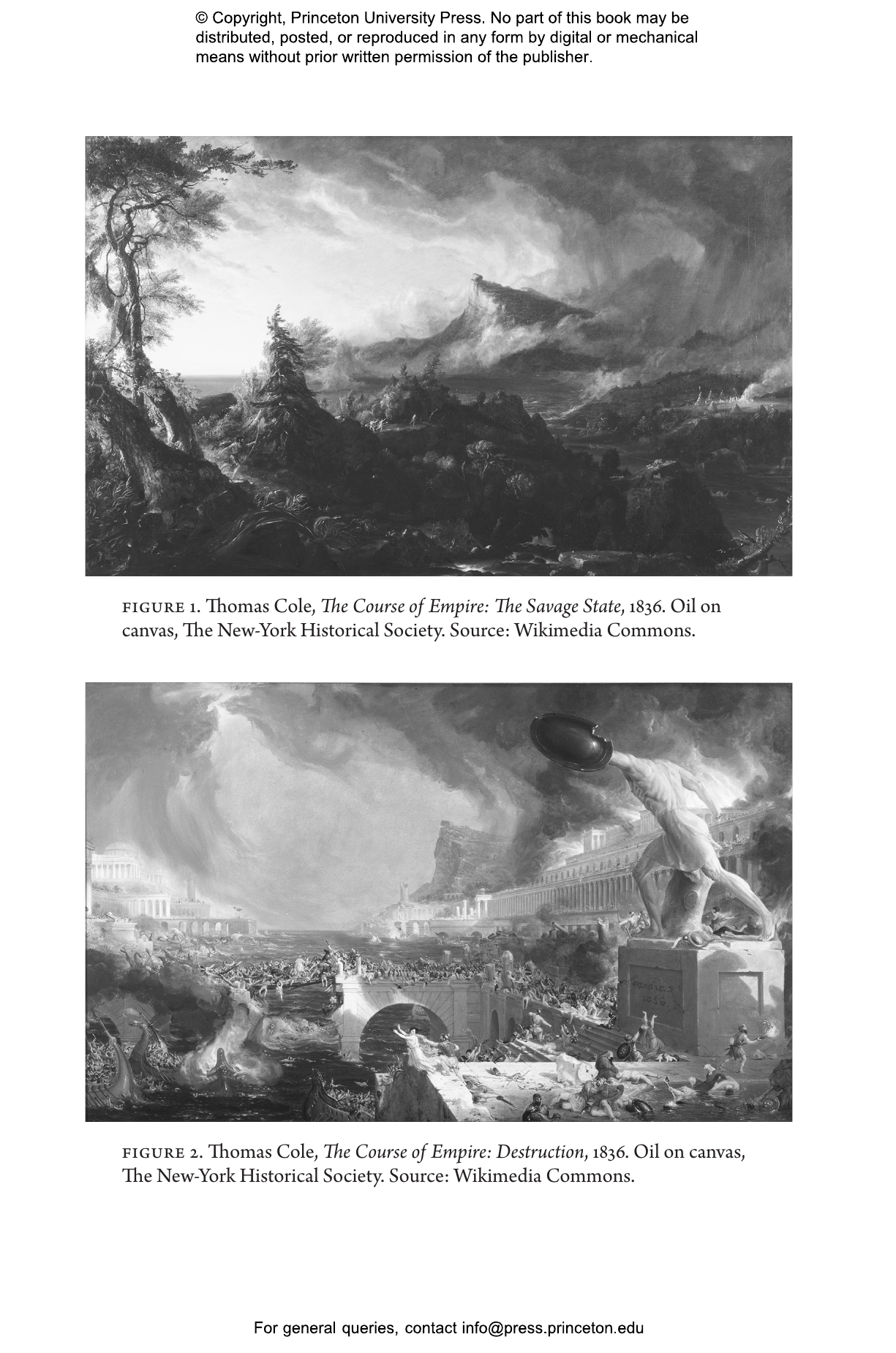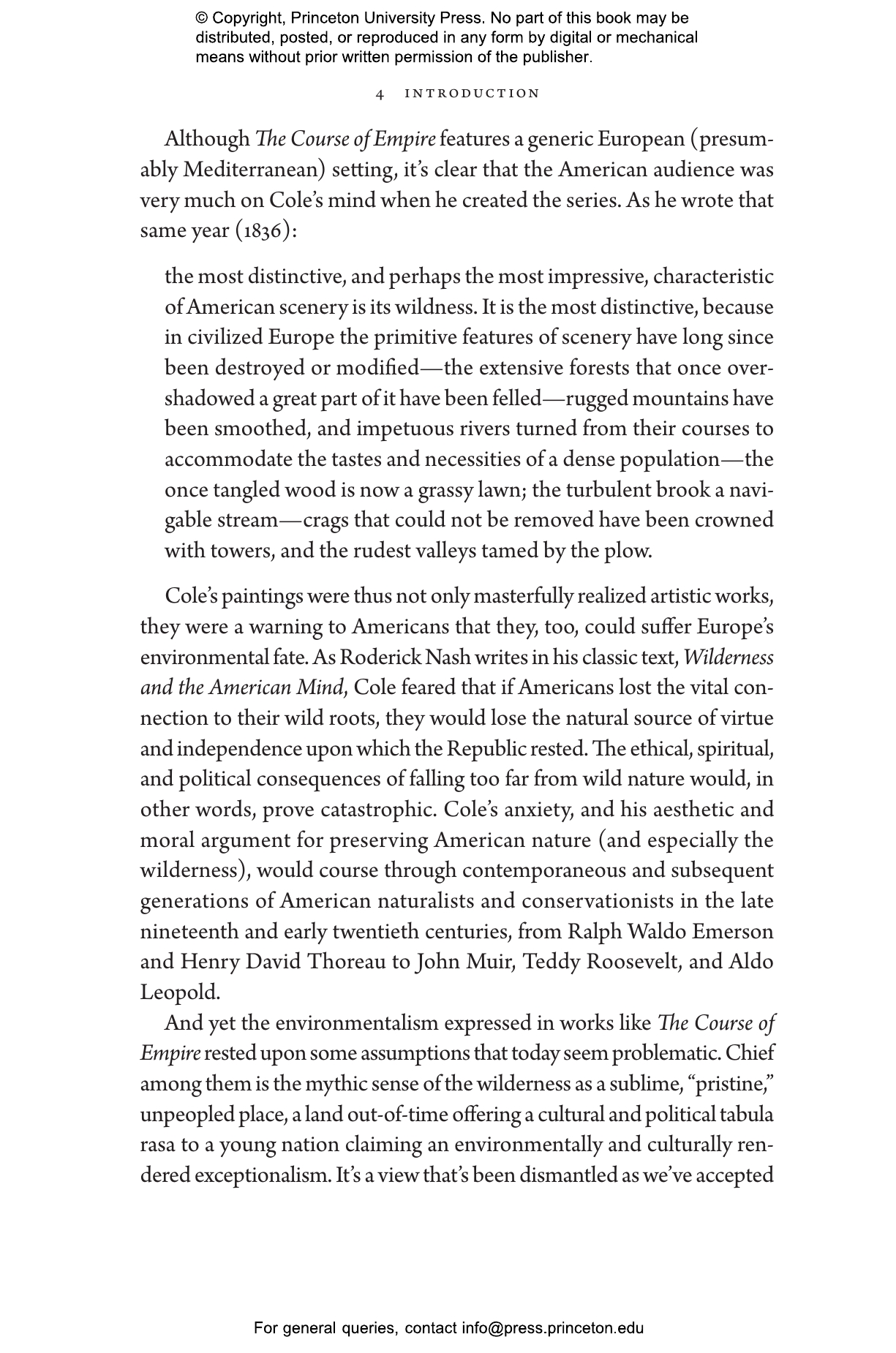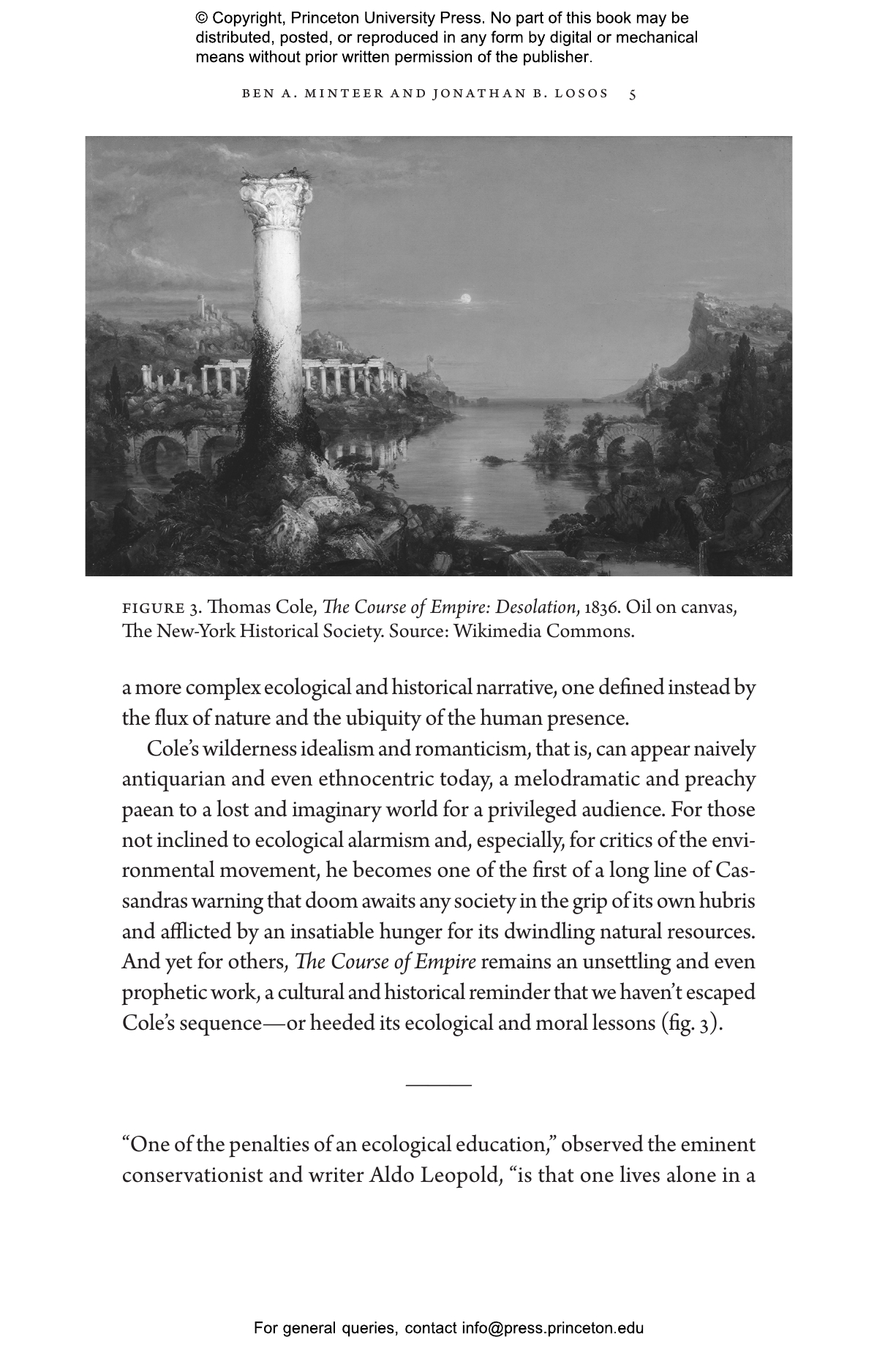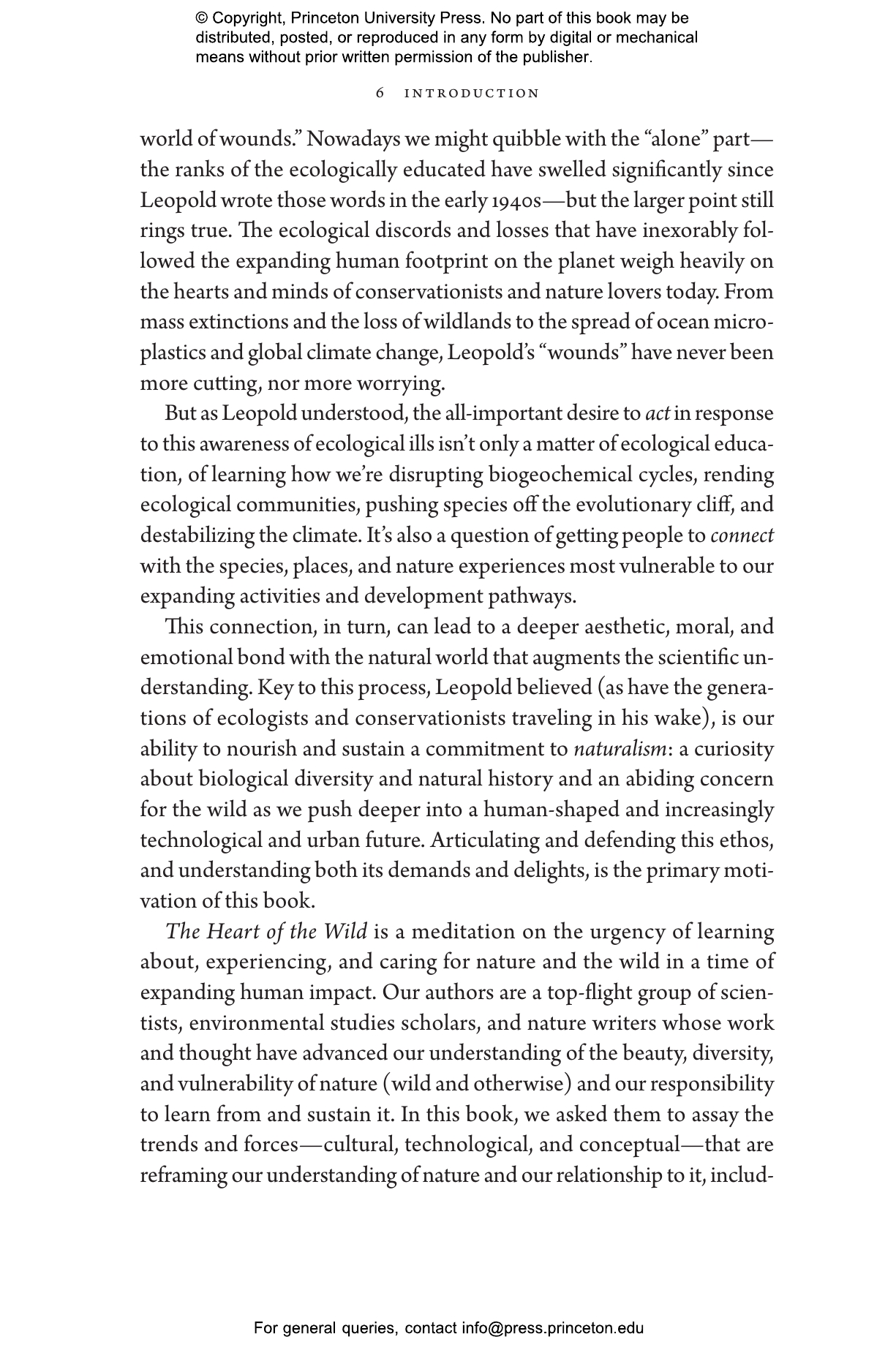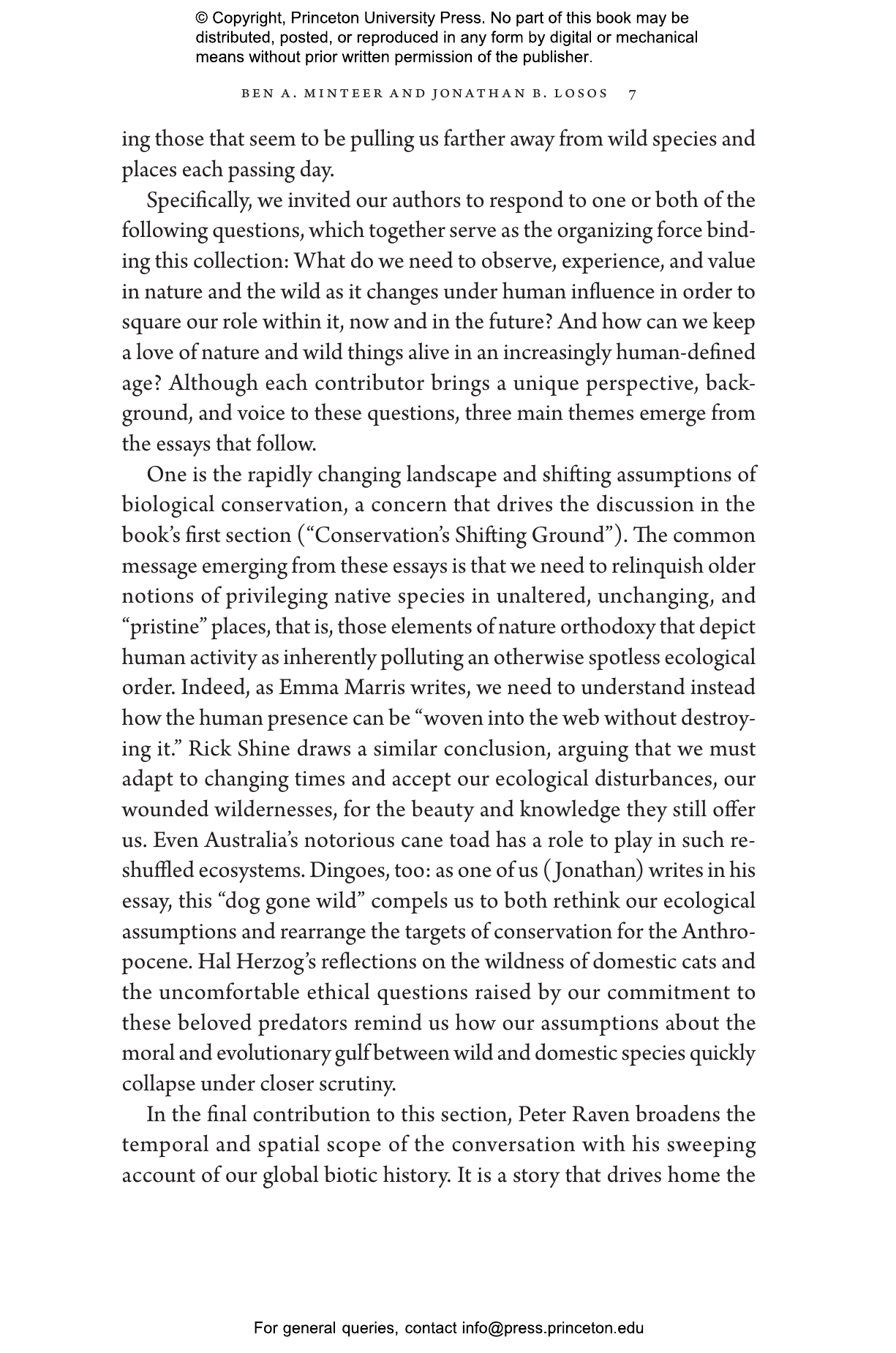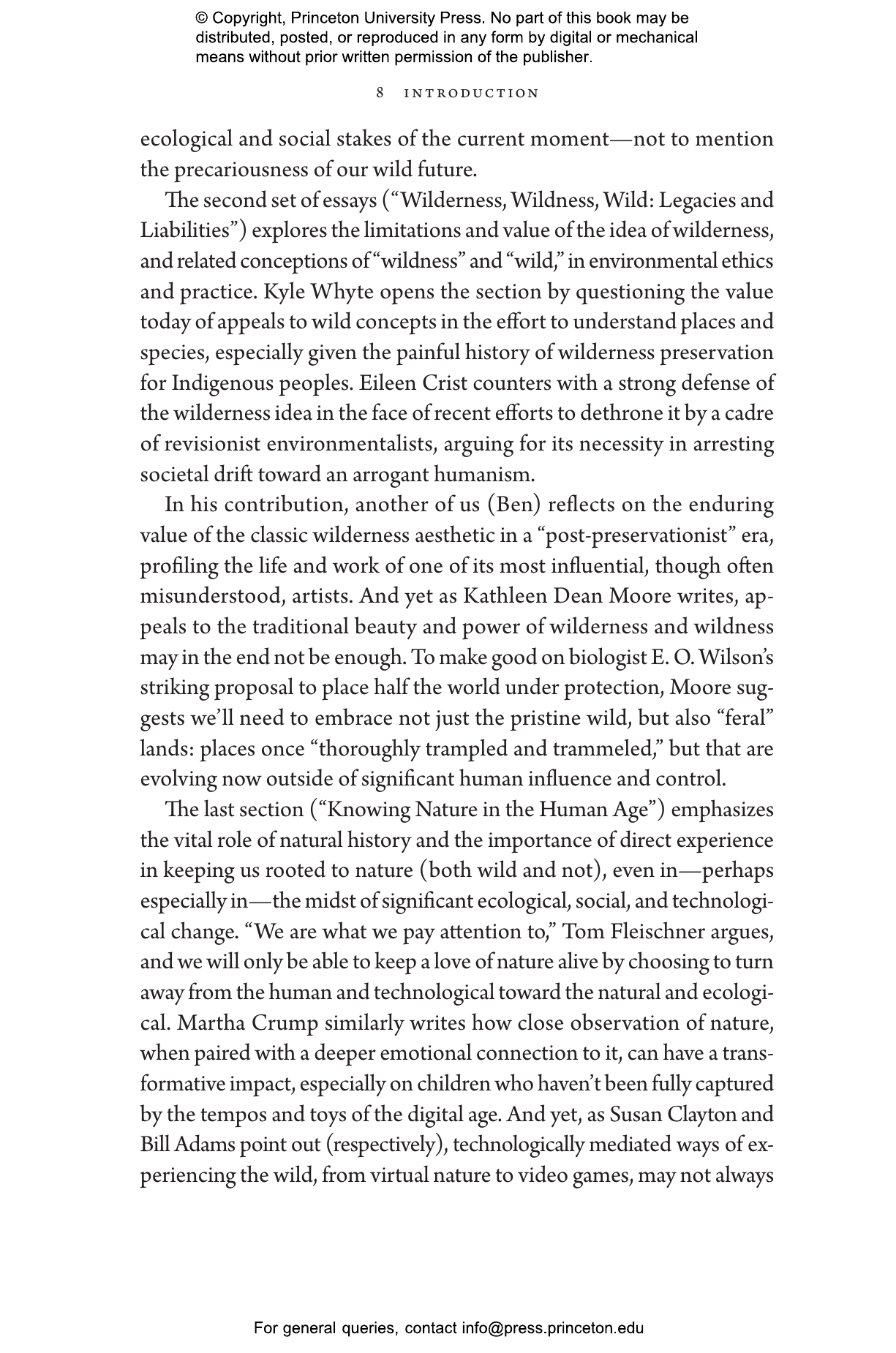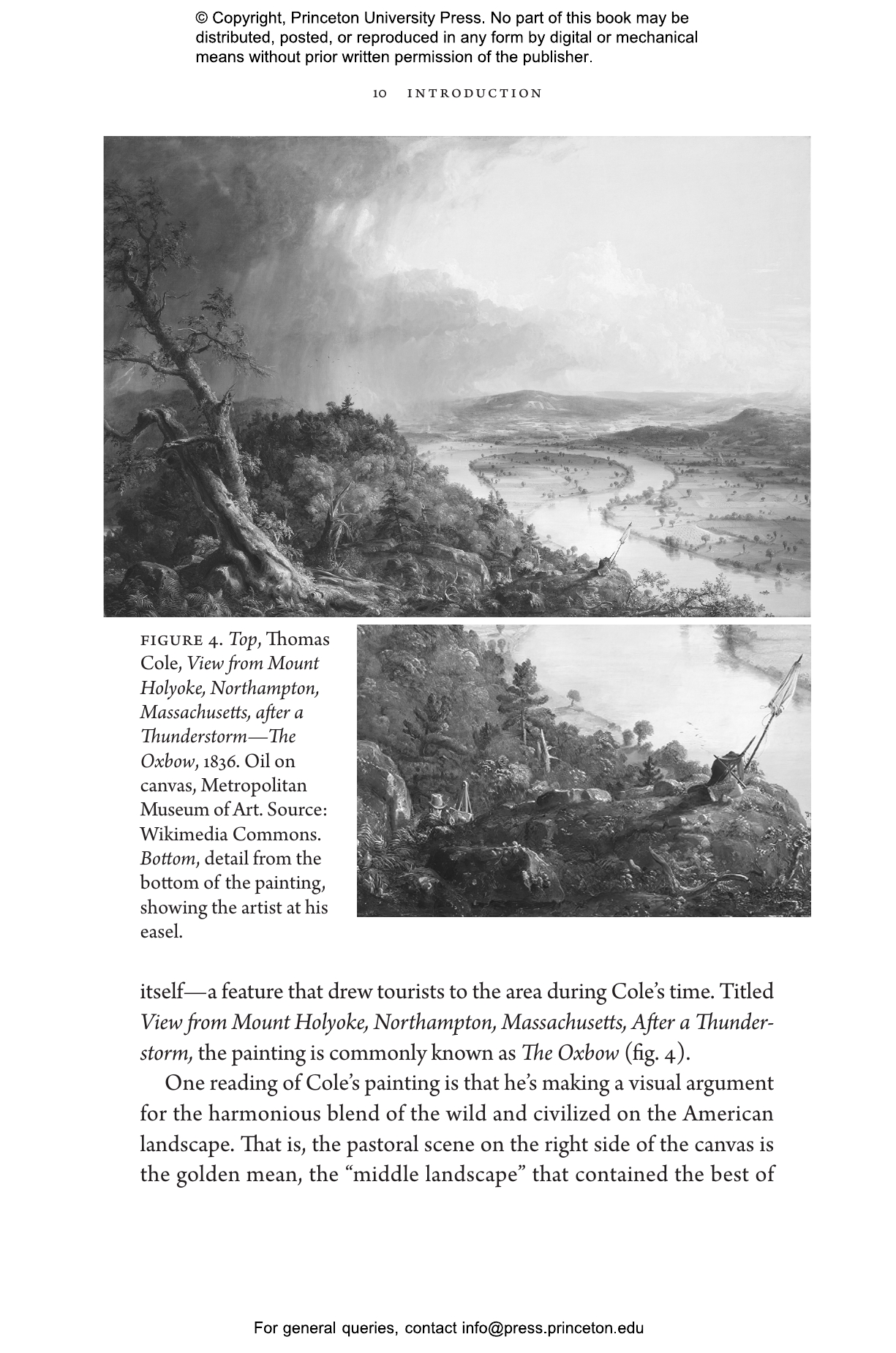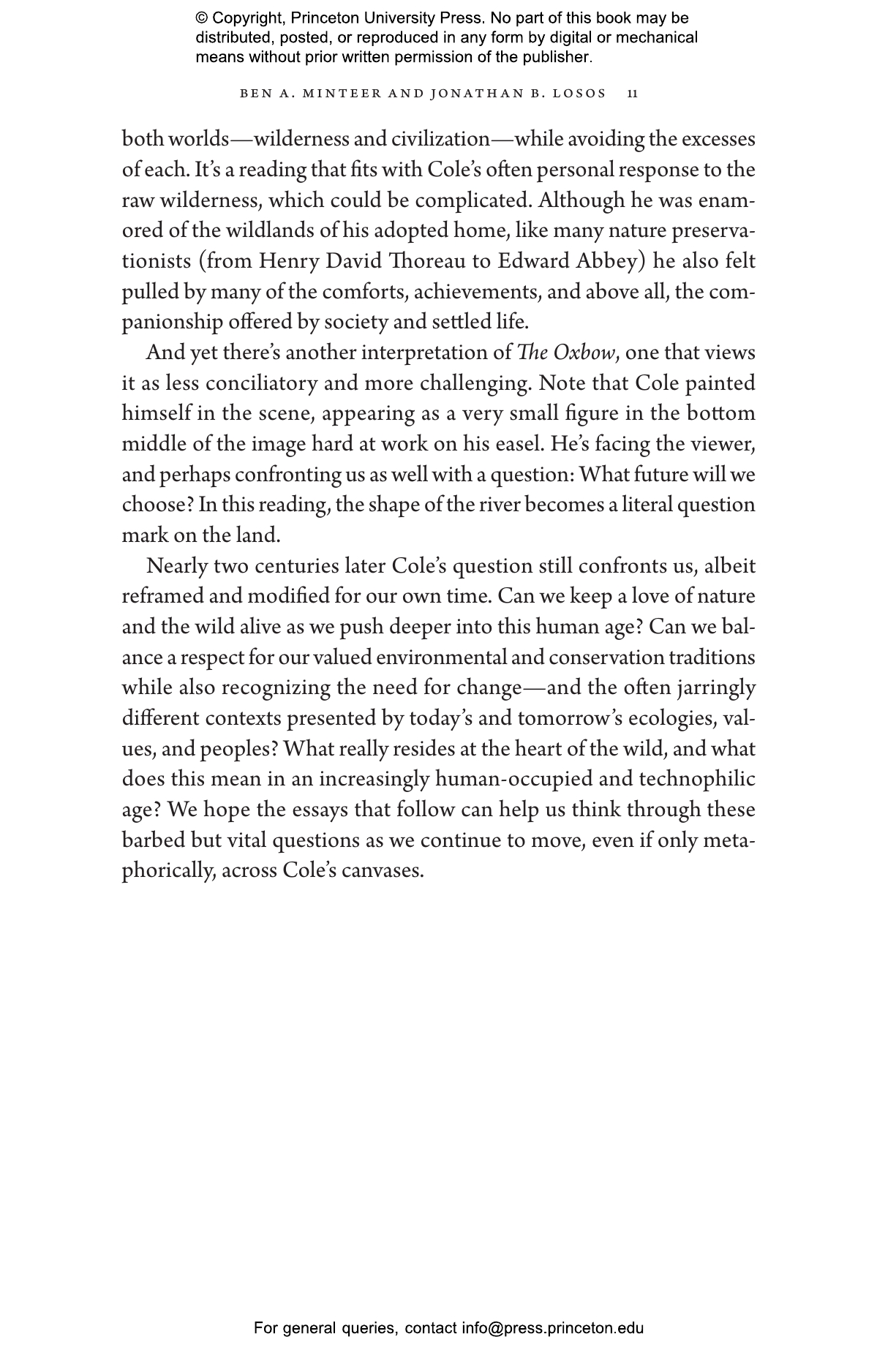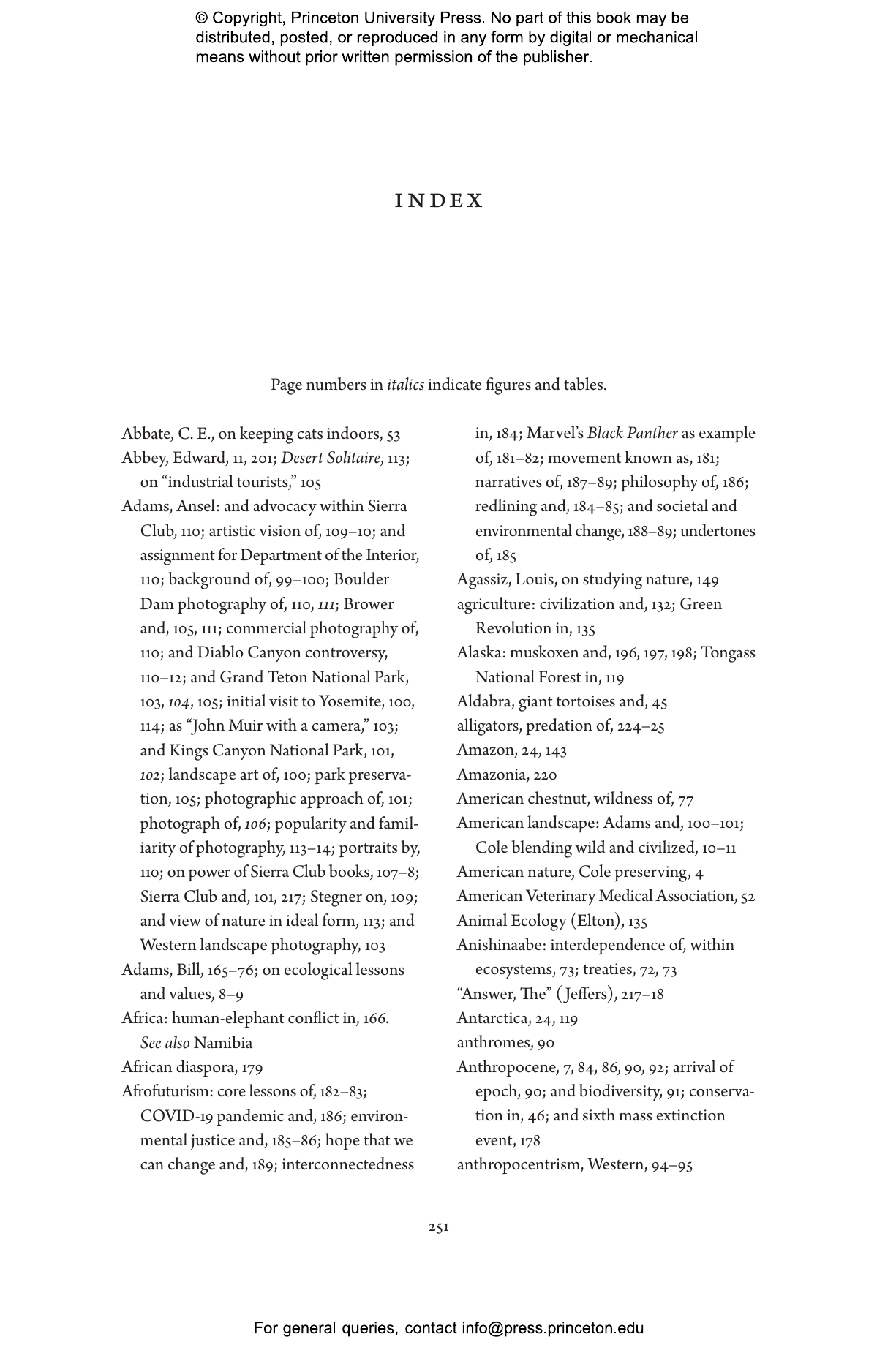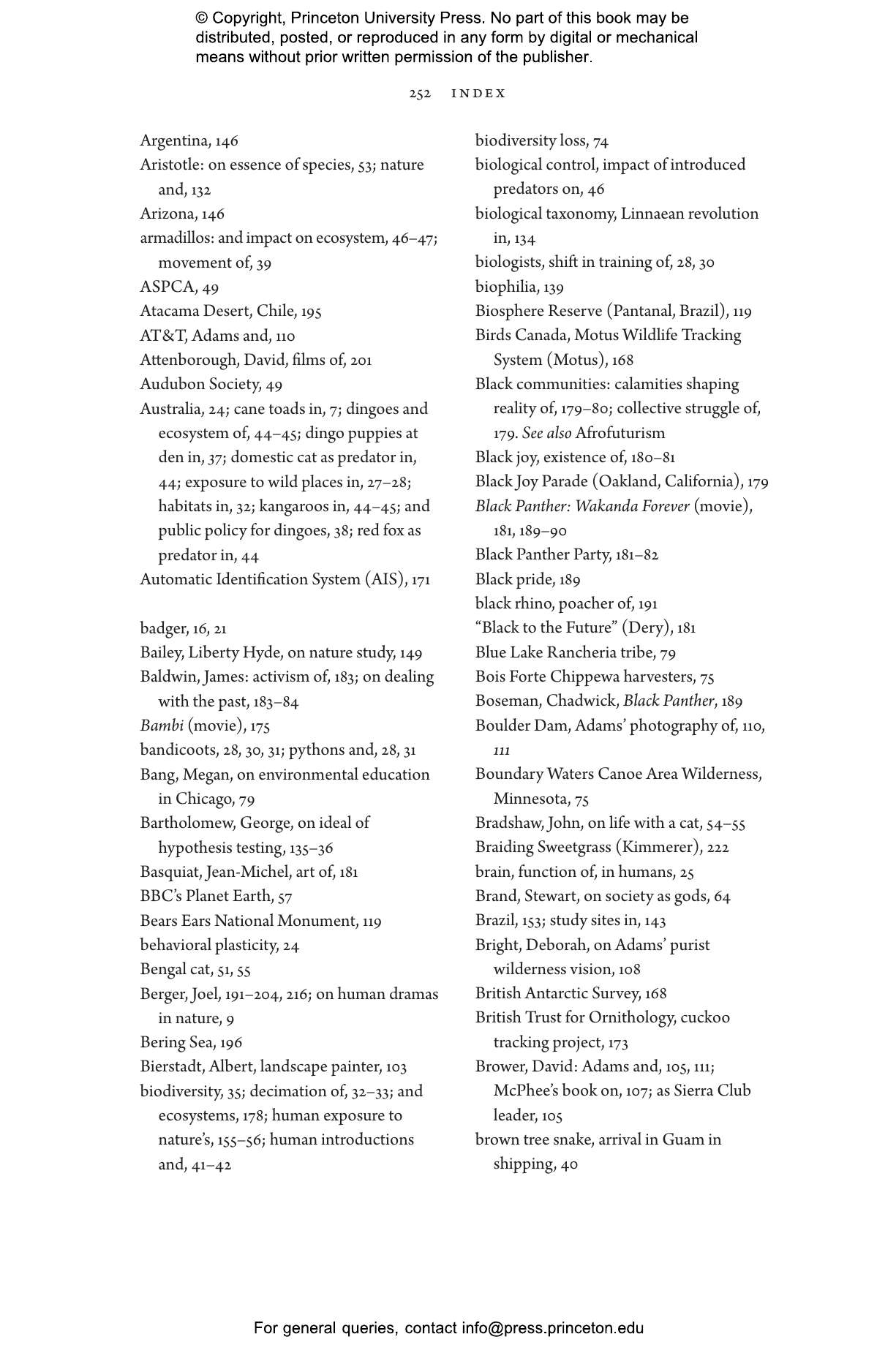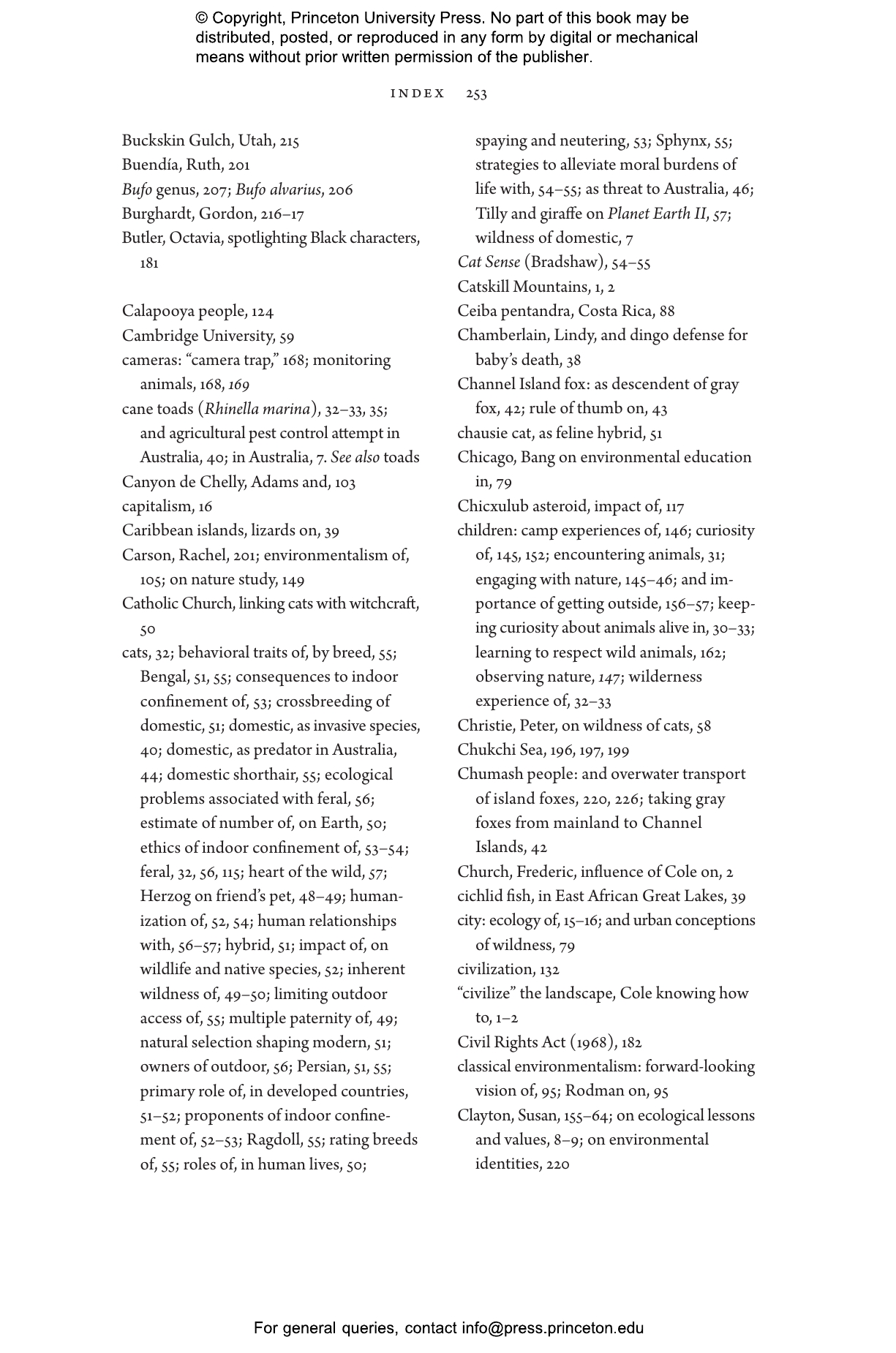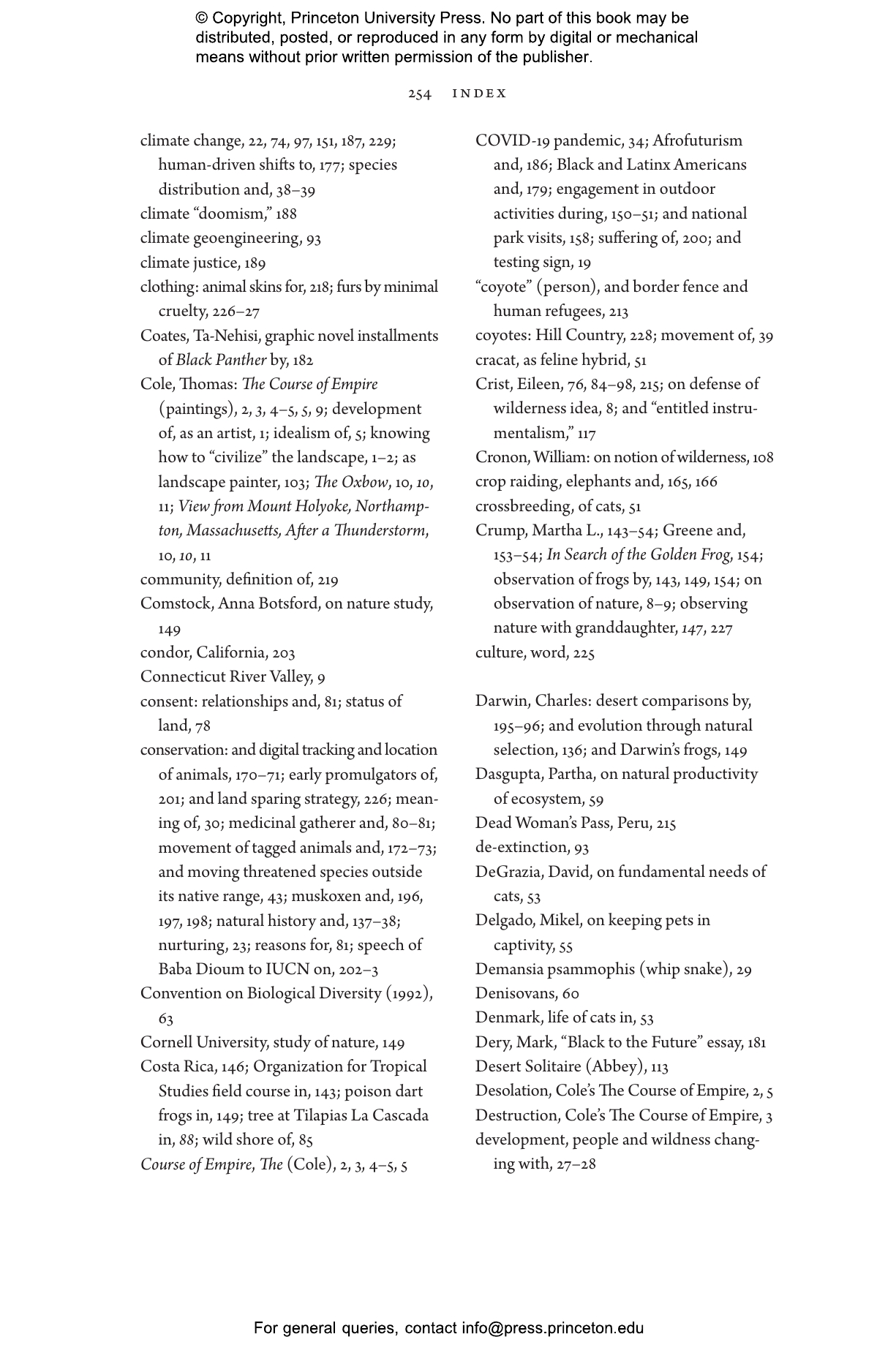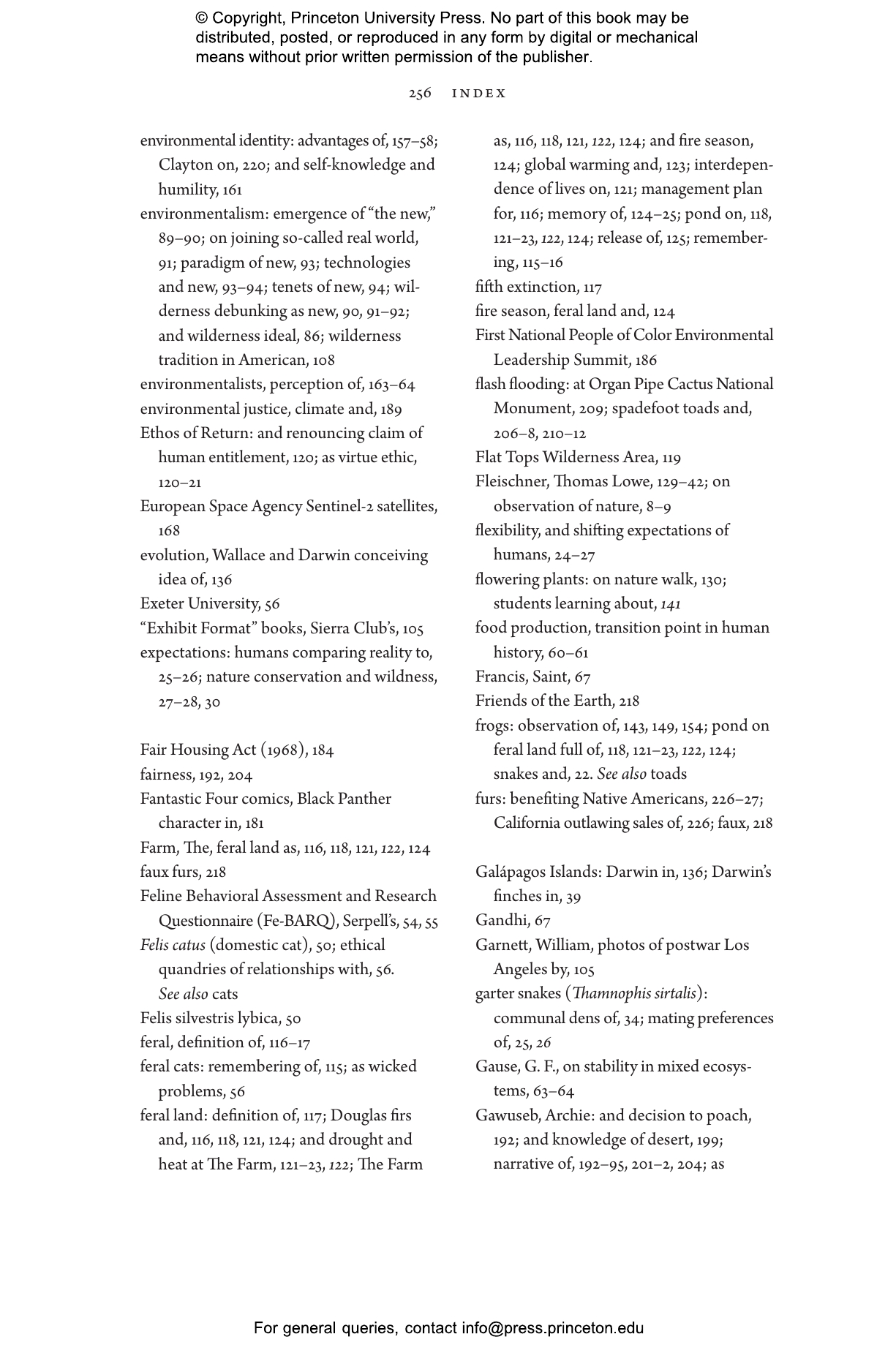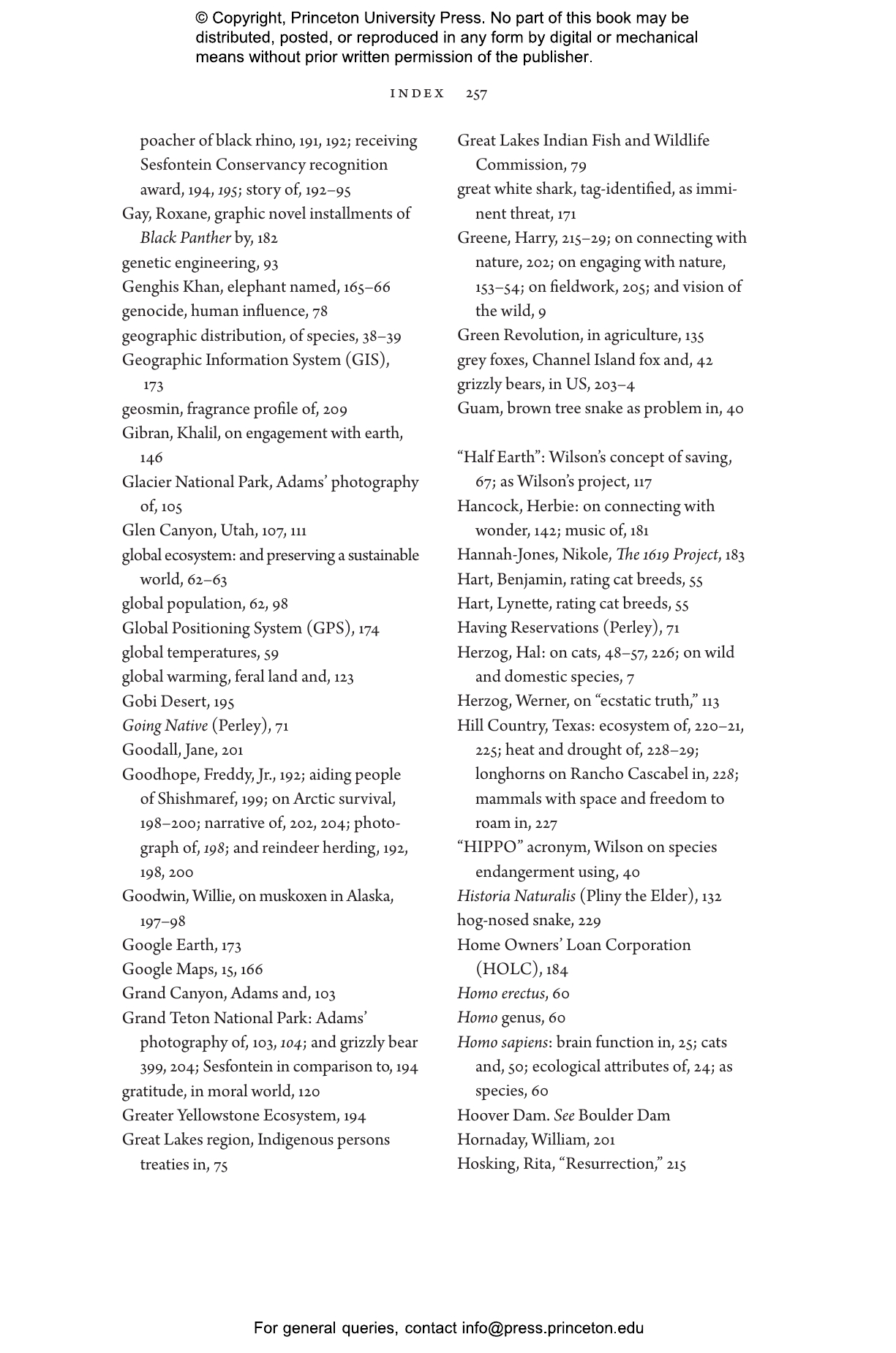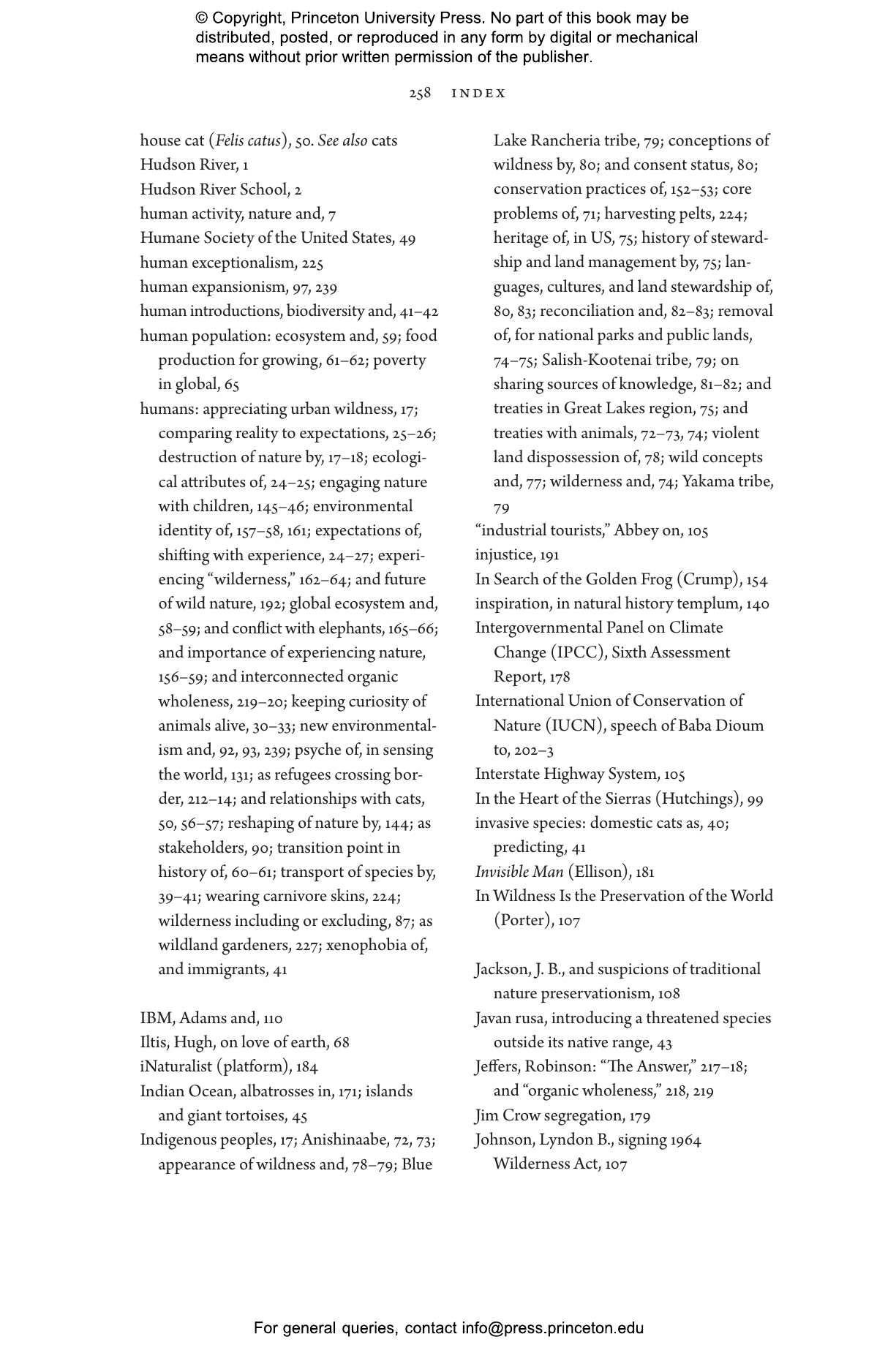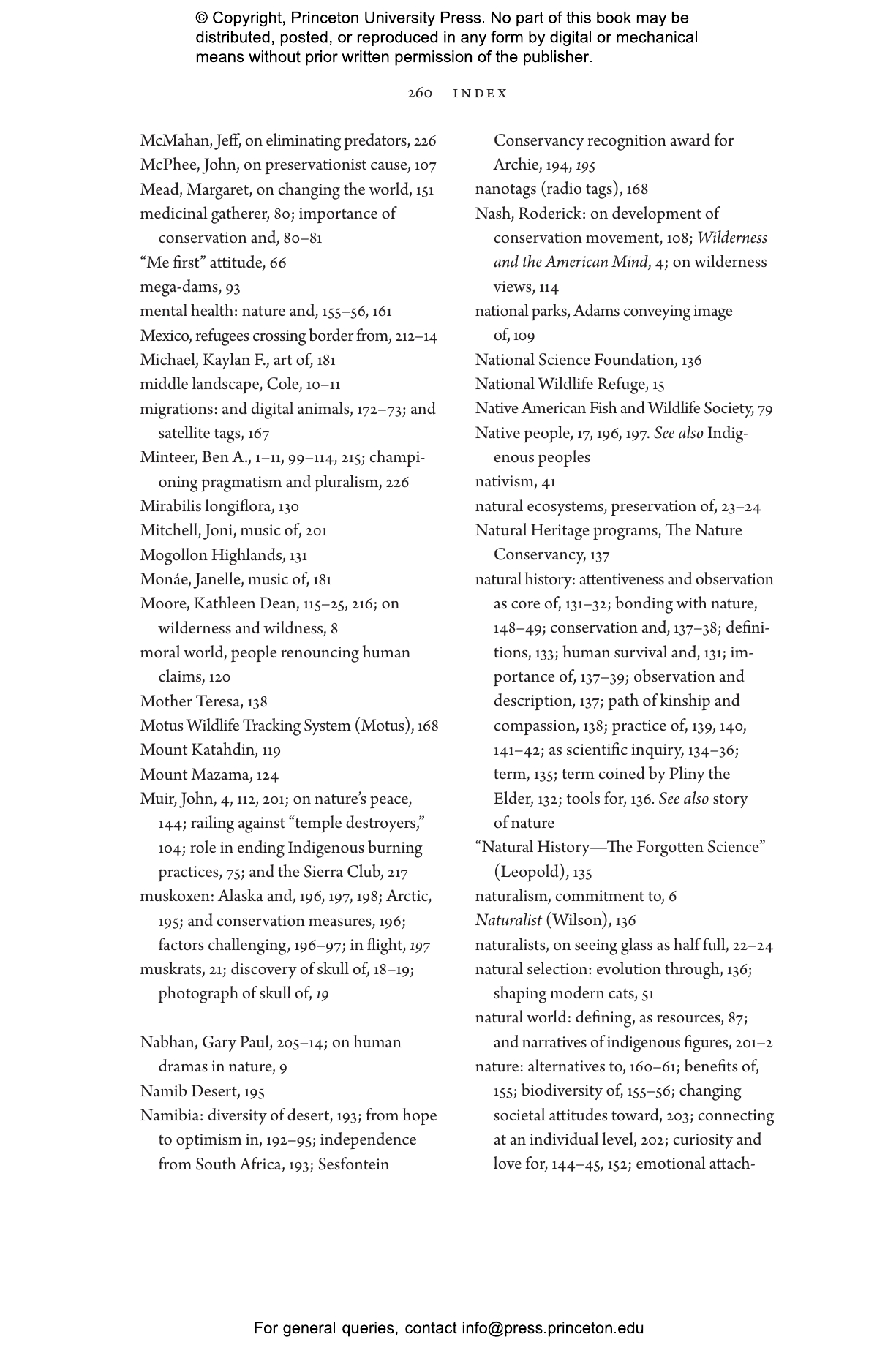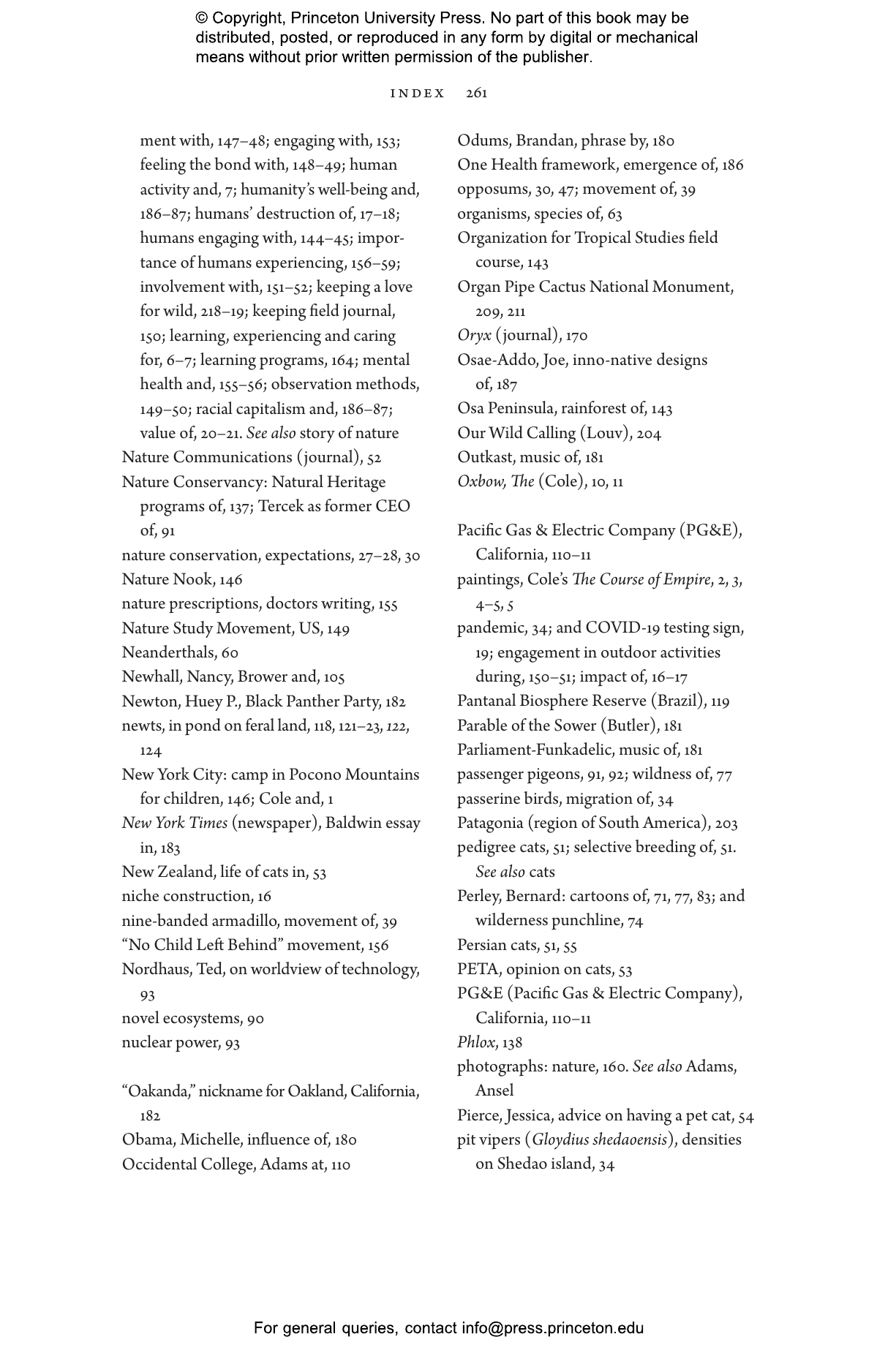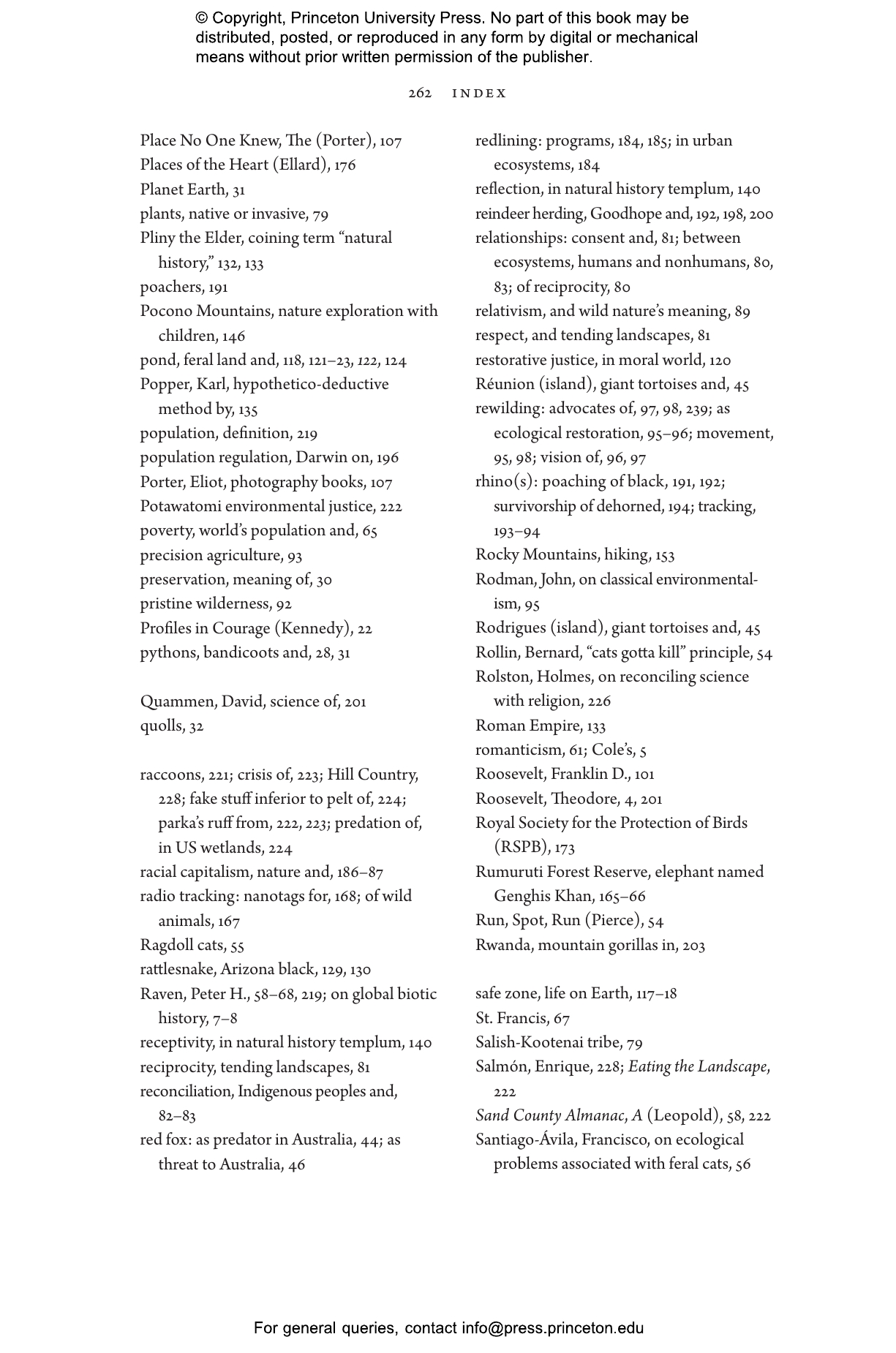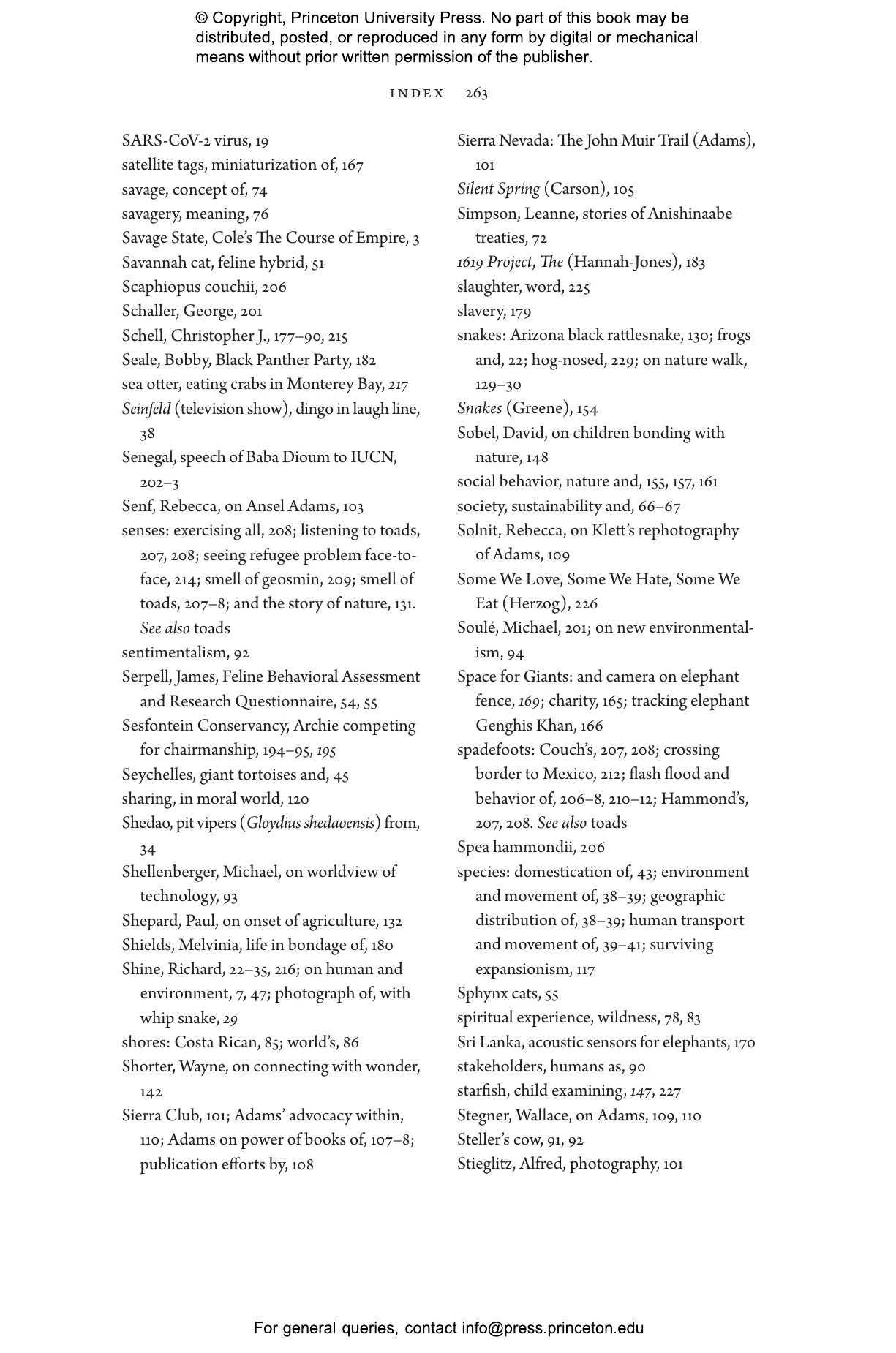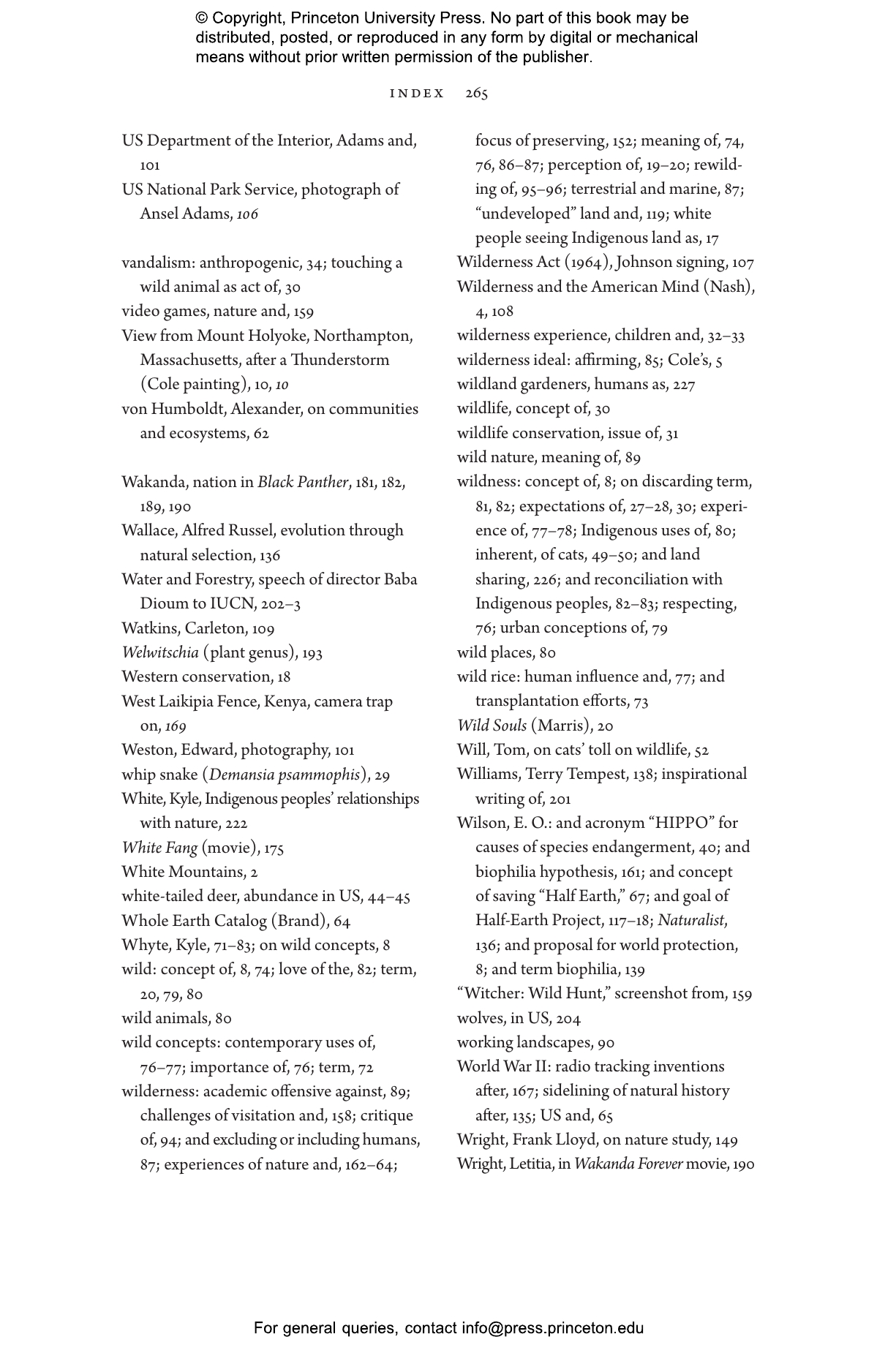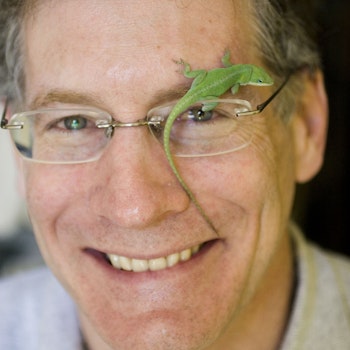The Heart of the Wild brings together some of today’s leading scientists, humanists, and nature writers to offer a thought-provoking meditation on the urgency of learning about and experiencing our wild places in an age of rapidly expanding human impacts.
These engaging essays present nuanced and often surprising perspectives on the meaning and value of “wildness” amid the realities of the Anthropocene. They consider the trends and forces—from the cultural and conceptual to the ecological and technological—that are transforming our relationship with the natural world and sometimes seem only to be pulling us farther away from wild places and species with each passing day. The contributors make impassioned defenses of naturalism, natural history, and nature education in helping us to rediscover a love for the wild at a time when our connections with it have frayed or been lost altogether.
Charting a new path forward in an era of ecological uncertainty, The Heart of the Wild reframes our understanding of nature and our responsibility to learn from and sustain it as the human footprint sinks ever deeper into the landscapes around us.
With contributions by Bill Adams, Joel Berger, Susan Clayton, Eileen Crist, Martha L. Crump, Thomas Lowe Fleischner, Harry W. Greene, Hal Herzog, Jonathan B. Losos, Emma Marris, Ben A. Minteer, Kathleen Dean Moore, Gary Paul Nabhan, Peter H. Raven, Christopher J. Schell, Richard Shine, and Kyle Whyte.
Ben A. Minteer is professor of environmental ethics and conservation at Arizona State University. His books include A Wilder Kingdom: Rethinking Nature in Zoos, Wildlife Parks, and Beyond. Jonathan B. Losos is the William H. Danforth Distinguished University Professor at Washington University in St. Louis and director of the Living Earth Collaborative. His books include How Evolution Shapes Our Lives: Essays on Biology and Society (Princeton).
"The scientists, humanists, and nature writers whose essays grace this book present subtle, though sometimes striking, differences in defining the term wild. Their thought-provoking essays not only convey the complexities involved—the tensions among preservation, rewilding, and human access—but often surprise with their unconventional attitudes and perspectives. Yet each essayist seems to share a conviction that having a scientific grasp of the perils facing our planet is incomplete without forging a moral and emotional bond with it."—Kirkus Reviews
"Reading the essays in The Heart of the Wild stimulated much thought for this reader and will hopefully do so for many others. . . . [A] taste of their thinking should whet appetites to sit down with this book and carefully consider what the authors have to say."—John Miles, National Parks Traveler
"A provocative but closely reasoned argument for including the human element in any discussion of the wild."—Bill Thompson, The Post and Courier
“Falling in love with the world around us—a world from which we’re too often abstracted and distant—may be the first crucial step toward saving some of that creation. The essays in this book, from some of the wisest and most eloquent voices on the planet, should summon us to this vital work.”—Bill McKibben, editor of American Earth: Environmental Writing since Thoreau
“This richly reflective book alerts us that conserving nature’s diversity will take more than political will and conventional pieties. It will take some sharper thinking. We can’t honor or save the ‘heart’ of the ‘wild’ until we better understand, and agree more broadly upon, what those two words might mean.”—David Quammen, author of The Song of the Dodo and Breathless
“The Heart of the Wild is a wonderful collection—a rich conversation that challenges orthodoxies, makes unexpected connections, and reminds us of the value of even the humblest forms of life.”—Michelle Nijhuis, author of Beloved Beasts
“In the enduring words of Aldo Leopold, the ecologist lives alone in a world of wounds—but The Heart of the Wild makes for awfully good company. The eclectic essays in this collection probe and challenge conservation’s deepest-held beliefs, lament all our planet has lost, and outline provocative visions for a future in which nature persists, albeit in a much-changed form. By turns heartbreaking and inspiring, this book finds wildness in the Anthropocene’s rubble, and alleviates our loneliness along the way.”—Ben Goldfarb, author of Crossings and Eager



